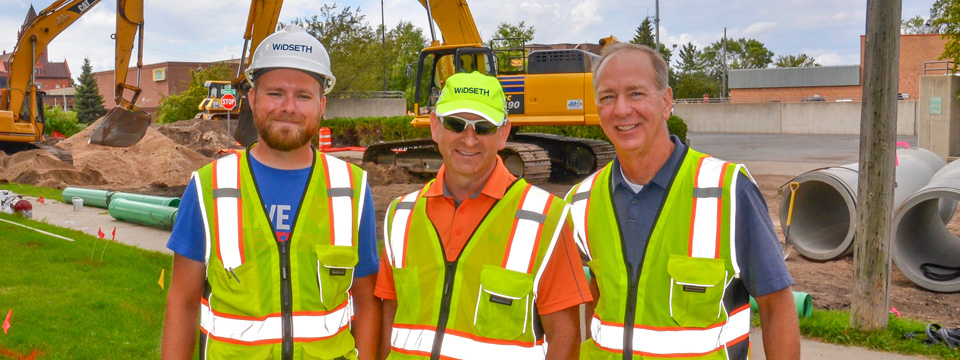What Value Does a City Engineer Add to My City?

The role of a city engineer is somewhat uncertain to many. Yet, these professionals are integral to the infrastructure that sustains our cities. Responsible for designing, managing, and maintaining vital systems such as roads, bridges, and utilities, city engineers play a crucial role in ensuring the smooth functioning progress of our communities. Understanding their contributions sheds light on how they add significant value to our cities.
A City Engineer helps guide the City Council and city staff by fulfilling various roles. They serve as technical support and planner for the city's infrastructure—those systems that enable the city to grow responsibly and meet the residential and commercial needs of the community. Infrastructure is the broad term for your city's transportation network, clean water supply, sanitary sewer, stormwater systems, and public buildings and facilities that fulfill specific community functions such as public works, parks, and recreation facilities.
A licensed professional engineer (PE) upholds strict standards for maintaining the public’s health, safety, and well-being while practicing under an oath of ethical integrity. Because of these high standards, clients rely on the engineer's expertise, professionalism, and insight.
Reasons for a City to Retain Engineering Services:
- Plans for public water supply, sanitary sewer, and certain other facilities require a PE’s signature according to state law and to meet certain funding agency stipulations. By signing these documents, the PE accepts responsibility for the plans’ compliance with local, state, and, perhaps, federal codes, ordinances, and standards.
- In Minnesota, state bidding law requires public bidding procedures to be followed for municipal contracts when the value of the contract exceeds $175,000. In North Dakota, that threshold is $200,000, and $25,000 in Wisconsin. Cities rely on the PE’s expertise in designing and preparing city infrastructure projects for public bidding.
- Public improvements often involve special assessments that must be completed according to state statutes. This process is usually completed by an experienced PE.
- All public projects require due diligence to ensure standards for public health, safety, and welfare are met. PEs or registered architects—professionals who sign off on project plans—bear the bulk of that burden.
While larger cities may maintain a full-time licensed engineer on staff, smaller municipalities frequently find it most economical and advantageous to retain an outside consultant to work alongside their staff.
Advantages of Retaining Engineering Services:
- Saving the cost of maintaining a professional, full-time employee and their team on payroll
- Freeing up staff to focus on other city initiatives
- Having an objective party verifying priority facility needs and project scoping
- Obtaining a broad range of expertise across a variety of engineering, surveying, and other professional disciplines
- Getting quality assurance reviews
- Applying appropriate and innovative solutions to the city’s infrastructure needs.
Whichever path a city follows, they are obliged to follow state laws. Hiring an attentive, responsive, and thorough engineer will help them meet this obligation, with the added benefit of reassuring their constituents they are good stewards of city resources.

Search Archives
Categories
Posts by Topic
- Staff News (98)
- Architecture (66)
- Funding (61)
- Civil Engineering (53)
- Education (48)
- Architectural Design (38)
- Engineering (37)
- Land Surveying (32)
- Surveying (26)
- Environmental (22)
- Commercial (21)
- Interior Design (18)
- Streets & Highways (17)
- Utilities (17)
- Water Resources Engineering (14)
- Industrial (13)
- Community (11)
- Cultural (11)
- Landscape Architecture (11)
- Sports & Recreation (11)
- Government (10)
- Aerial Mapping (8)
- Mechanical Engineering (8)
- GIS (7)
- Electrical Engineering (6)
- Structural Engineering (6)
- Senior Living (5)
- Transportation Engineering (5)
- Bridges (3)
- Site Design (3)
- Transmission & Distribution (3)
- Healthcare (2)
- Planning (2)
- manufacturing (1)
Recent Posts
-
May 06, 2024



